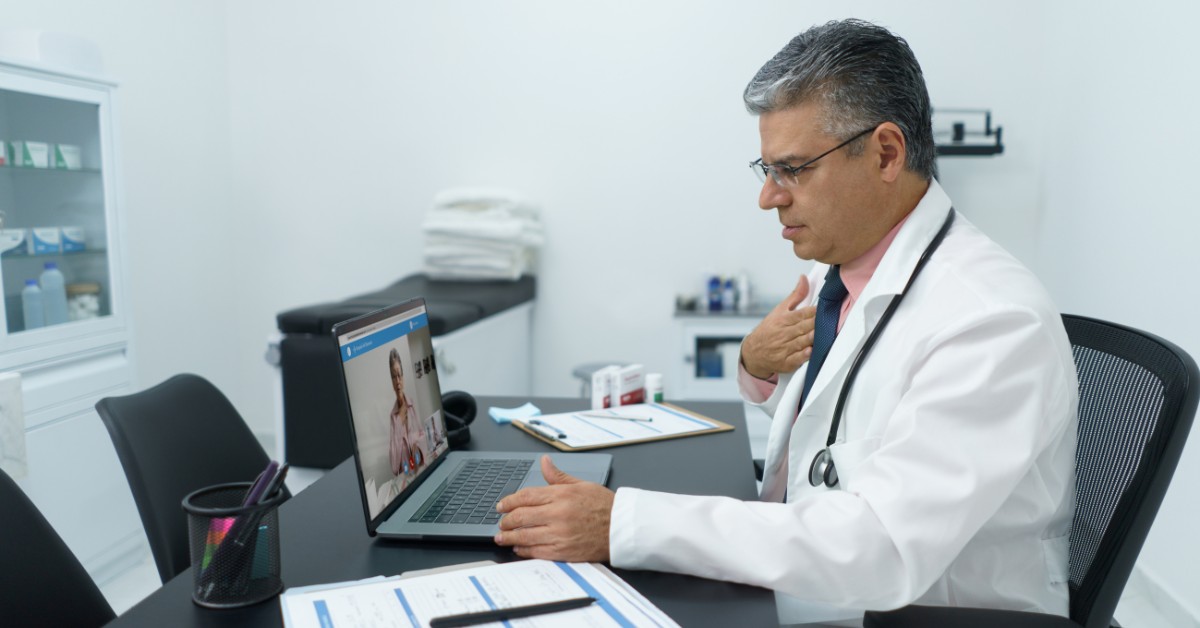
Fellowship Wellness Tips: Promoting Physical, Mental, and Spiritual Well-Being
Congratulations on making it this far in your medical career! You’re putting in the time during your fellowship to become a trusted member of the medical community. But fellowship years can also be one of the most challenging times of your journey. Long hours, higher stakes, and plenty of barriers to achieving a healthy work-life balance can leave you struggling, both physically and mentally. Here are some tips to help you manage all the potential pitfalls during your fellowship and throughout your medical career.
Recognizing the Challenges of Fellowship: A Pressure Cooker of Stressors
While residency poses its own difficulties, fellowship builds upon those, adding further responsibilities and stressors…
Amanda Zeglis, DO
After studying the prevalence of mental health problems and burnout in medical residency and fellowship programs, psychiatrist Amanda Zeglis, DO, MBA, noted that fellowship can create a pressure cooker of mental and physical stressors.
“While residency poses its own difficulties, fellowship builds upon those, adding further responsibilities and stressors as physicians continue to expand their knowledge base,” Dr. Zeglis said. And while these stressors are problematic enough in everyday life, when it comes to a medical setting, they can also lead to a troubling increase in medical errors and professional misconduct, according to a 2022 study published in Academic Medicine, a Journal of the Association of American Medical Colleges.
“Building these self-care habits early on during fellowship can serve as a protective shield, effectively mitigating the risk of burnout throughout our demanding careers,” said Jasdeep Dalawari, MD, interventional cardiologist and Regional Chief Medical Officer at VitalSolution.
So how can you best bolster your physical, mental, and yes, spiritual well-being during your fellowship years? Here are some tips.
How to Protect Your Physical Wellness During Your Fellowship

Physical well-being doesn’t have to mean hitting the gym every day (though regular exercise can play a very positive role).
While in medical school, I committed to a fitness routine that, to this day, provides benefits for my mental and physical well-being.
Jasdeep Dalawari, MD
“While in medical school, I committed to a fitness routine that, to this day, provides benefits for my mental and physical well-being,” said Dr. Dalawari. “Just an hour at the gym, two to three times each week, has become integral to my performance and stress management.” You can find physical wellness through many other areas in your life that could be lacking during your fellowship.
These can include:
- Getting enough sleep. Yes, that sound is thousands of fellows laughing. Sleep? What’s that? It’s almost terrifying how little sleep new doctors can get while still operating “on the job,” but mandates on the length of the work day or week are just one way to prevent overwork and burnout. Quality sleep can also mean rest that’s free of restless thoughts, worries about debt, family obligations, and even just a calm sleeping environment and a comfortable bed. How well do you sleep? Could it be improved?
- Take stretch breaks. Prolonged hours of work can lead to discomfort or even serious health complications. Establishing a sustainable routine that involves regular stretching and movement can work wonders for your health. Implement a 5 to 10-minute stretch break as part of your daily regimen and take notice of the remarkable effects it has on mitigating the physical stress associated with intensive healthcare work. Not sure what or how to stretch? Check out this guide on stretches for healthcare workers.
- Avoiding excessive stimulants, depressants, and other physical drains. Too much coffee? Or alcohol? Even a poor diet filled with regular “dinners” from a vending machine can impact your physical health. A study published by JAMA has noted a rise in the number of physicians self-reporting problematic alcohol use in recent years (though the increase could be due to an environment that encourages this disclosure). Findings indicated an increase from 16.3% in 2006 to 2010 to 26.8% in 2017 to 2020.
- Continue to get health checkups. Yes, even when you work in a hospital, you should make an appointment with your own doctor from time to time. Regular exams, bloodwork, and just a check-in with your medical team, from a GP to your dentist, can keep you feeling your best.
Improving Your Mental Health During Your Medical Fellowship
The proverb, “Doctor, heal thyself,” is often uttered when a physician doesn’t take time to take care of their own medical needs. It rings true that those in the medical field can avoid treatment because they feel embarrassed, self-doubting, or just plain too busy to be seen for an illness, be it physical or mental. From a cut they ignore to severe depression, doctors can benefit from a community that is open to the fact that they are, in fact, just mere humans.
Even in recent studies, there is a great deal of evidence that it’s still hard for physicians to seek mental health support. For example, one study found that in “October 2020, 87% of emergency physicians reported feeling more stressed due to COVID-19, but 45% said they didn’t feel comfortable seeking treatment if needed.” One way to reduce the stigma is by having more open conversations about personal experiences.
Personal Stories of Resilience: Dr. Ahmed Hankir’s Journey
It takes strength to accept that you might be a source of stigma.
Dr. Ahmed Hankir
One physician, Dr. Ahmed Hankir, felt immense stress as a medical student who experienced a mental health crisis while in school in the United Kingdom in the early 2000s. But he now uses his experiences as a way to connect with his patients, and he shared his stories with the World Health Organization.
“I’m honest and open about my experience of living with a mental health condition. More people are talking about it. We normalize living with mental health conditions,” said Hankir. “It takes strength to accept that you might be a source of stigma. What we need is humility. But I’ve met inspirational, humble doctors who have contributed to my recovery and continue to contribute to my resilience.”
Want to learn more about recognizing signs of a crisis in yourself or others? Read our recent blog post on mental health resources, and take note of signs of mental health struggles. Be a good member of the medical community and speak up, not only for your own needs but for those of your Fellows as well.
How to Reach Out When You Need Help
Lastly, remember you can always reach out to anonymous resources for help, no matter what. Here are some doctor-focused mental health resources:
Physician Support Line
A national and confidential support line service made up of 600+ volunteer psychiatrists offering peer support for physicians. Open 8 a.m. to 1 a.m. EST, 7 days a week; no appointment is necessary.
(888) 409-0141
physiciansupportline.com
Peer Support for Physicians
PeerRxMed™ provides a free peer-to-peer program to support well-being. The program requires signing up with a buddy to provide each other encouragement, support, and accountability.
peerrxmed.com
Suicide and Crisis Lifeline
Just dial 988 – it’s available 24/7. The lifeline also connects individuals with crisis counselors for emotional support and other services via web chat or texting 988.
988lifeline.org
Yes, You Can (And Should) Think About Spiritual Wellness, Too
Finally, taking care of your holistic well-being is vital to maintaining your health during your fellowship. Spiritual fitness doesn’t have to mean adhering to a traditional religious practice. It could also include time for self-reflection and assessment during the workday and during downtime.
“Finding time or making time is the most difficult challenge that fellows face. Waking up extra early or finding a few 15-20 minute blocks during your day is the best way to overcome time challenges,” notes Dr. Dalawari.
Some structured activities could be helpful to provide some guidance, especially when it’s hard to set aside time when your life is busy, like during your fellowship. Here are some examples of ways to boost your feelings of spiritual well-being:
- Volunteer with an organization you admire and respect.
- Spend time outdoors, enjoying nature.
- Take time for regular self-reflection (daily, weekly, or simply regularly)
- Spend time outside the workplace with friends and other social groups
- Keep up with hobbies and activities you enjoy
What Will Make You Feel Better?
You can also find ways to combine all of the above into healthy practices, like a yoga practice to boost your physical activity as well as mindfulness. Or taking a meditation class regularly with friends, to add some accountability to your schedule. Finding your own ways to boost your well-being is important in order to create habits that you want to maintain.
So where do you think you have room to improve? And what will you do next to reach some new goals?
 company
company 
 (866) 755-7519
(866) 755-7519











